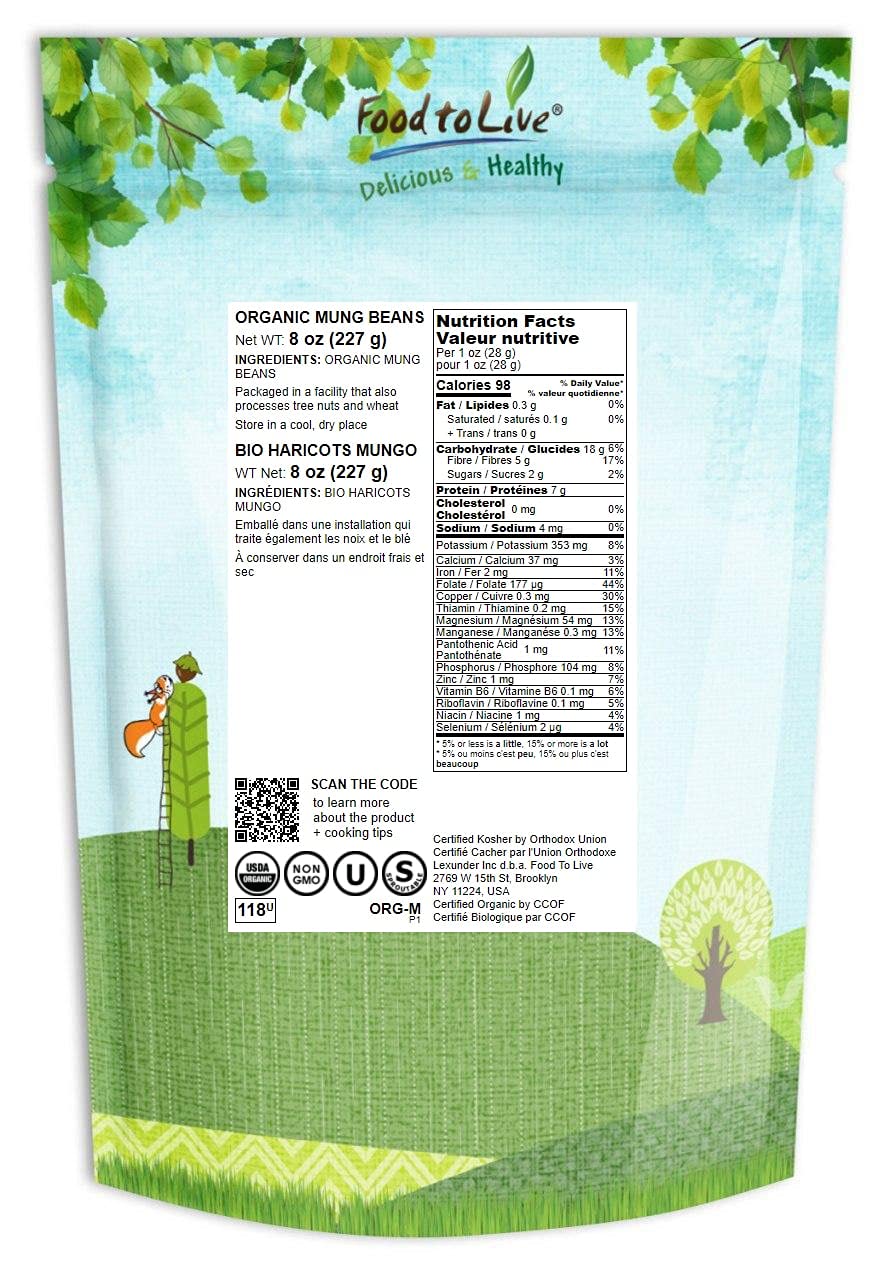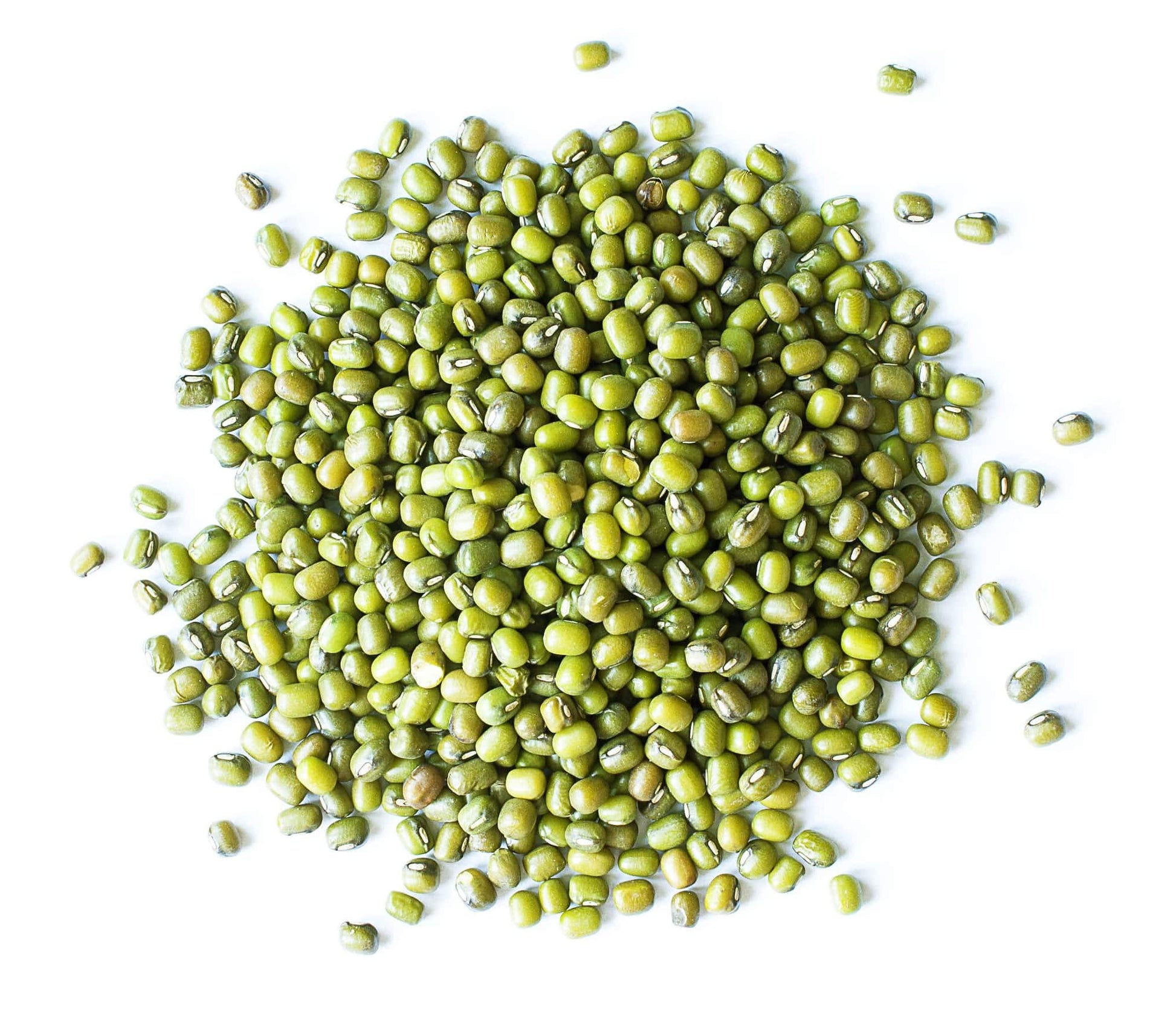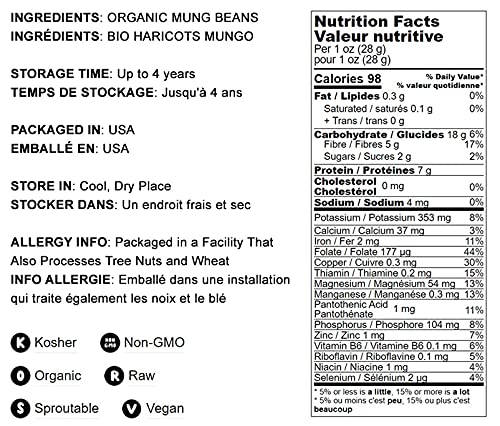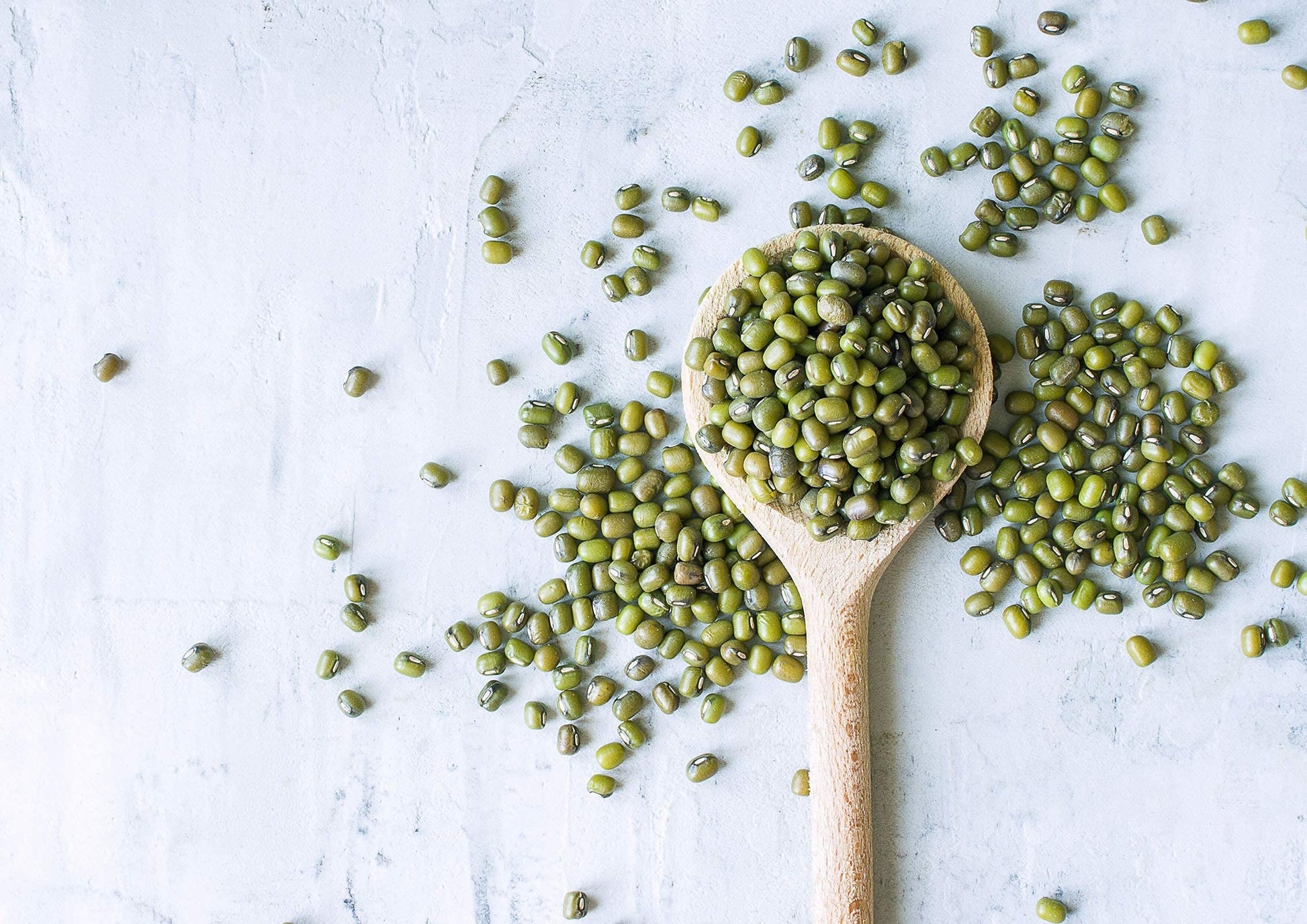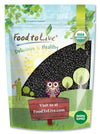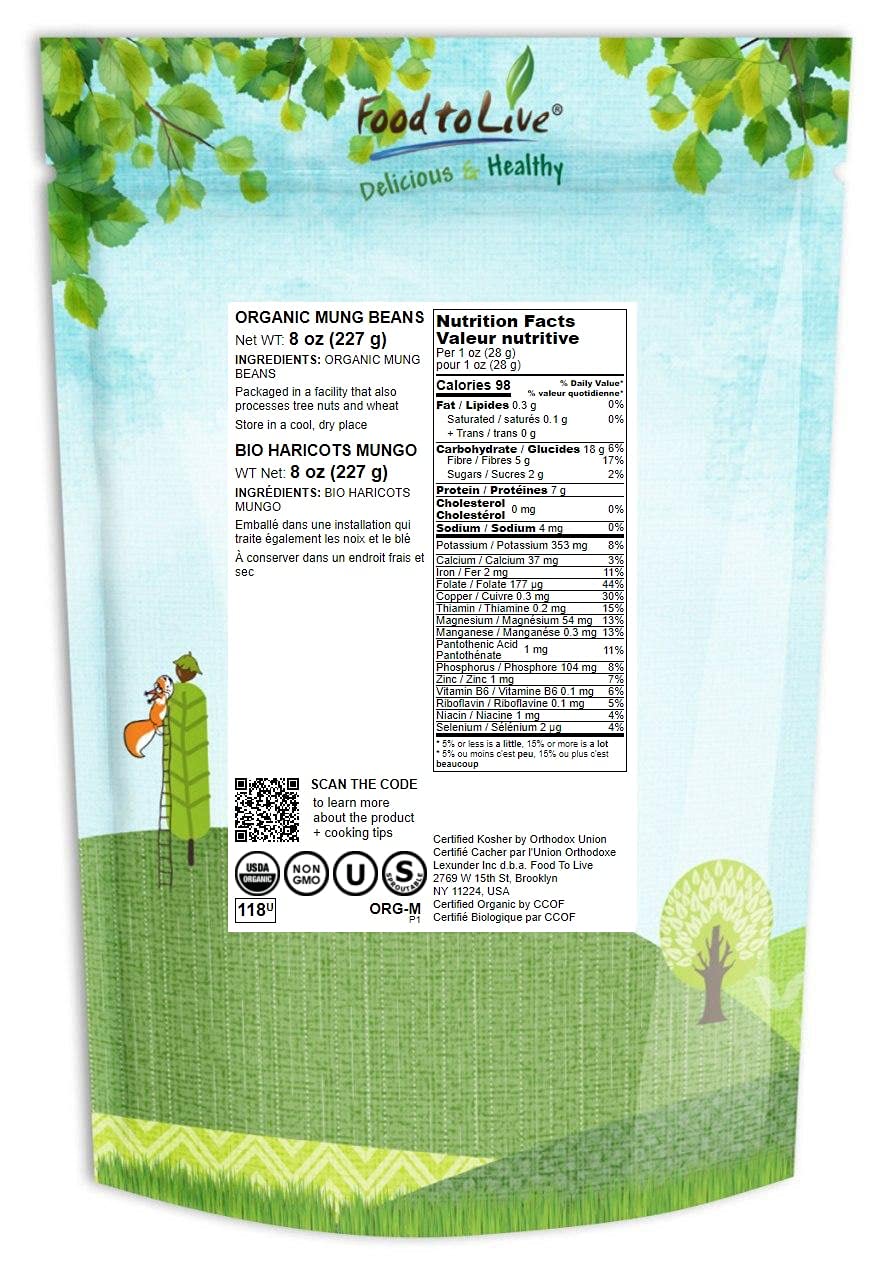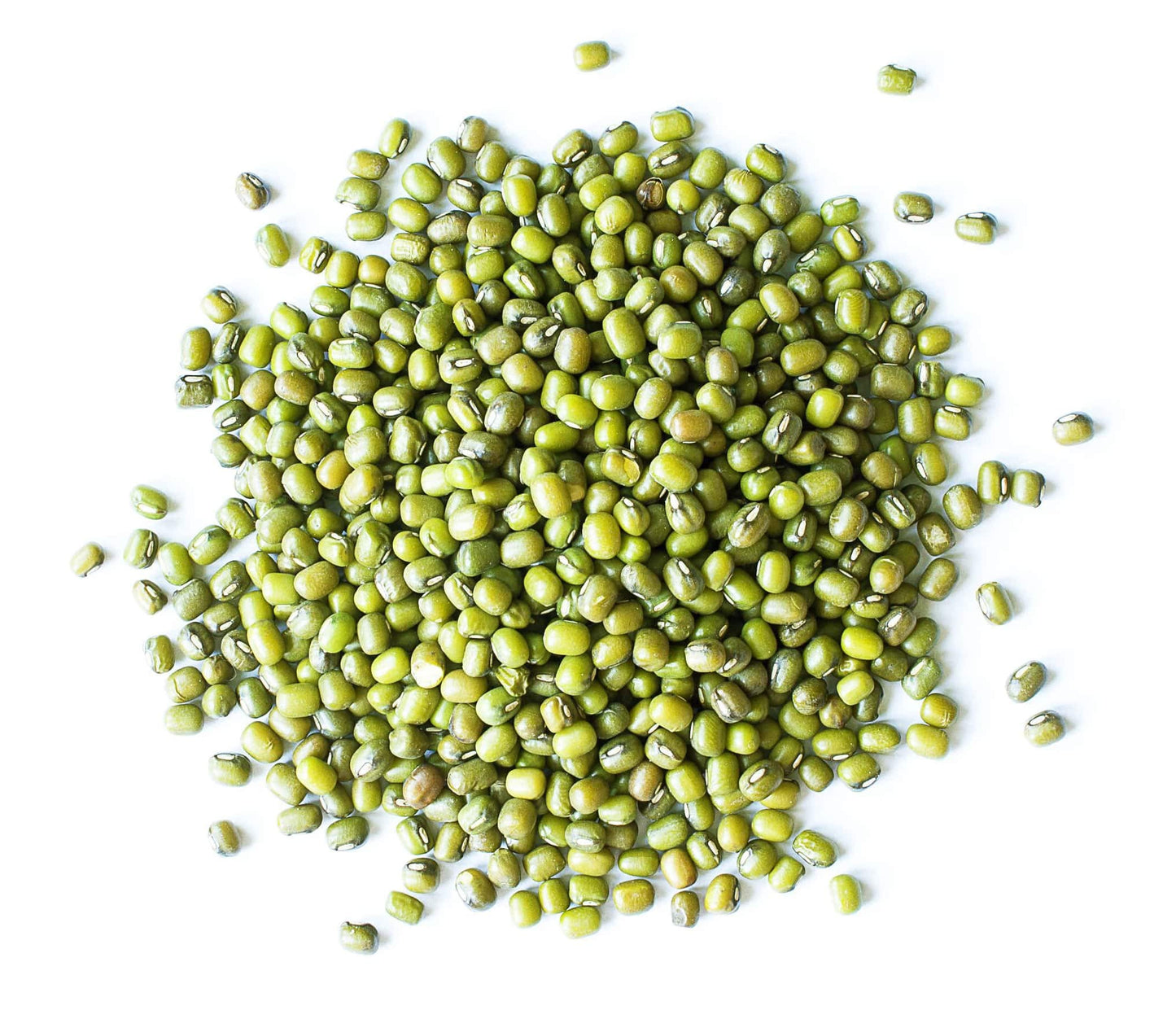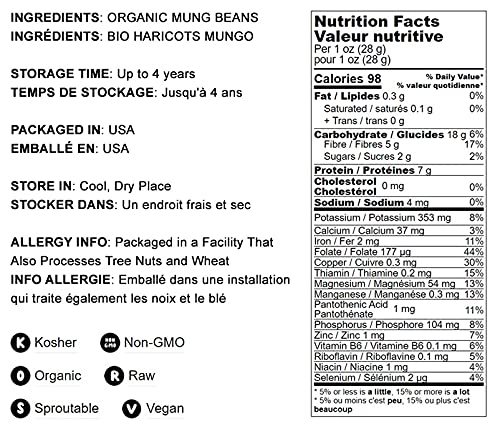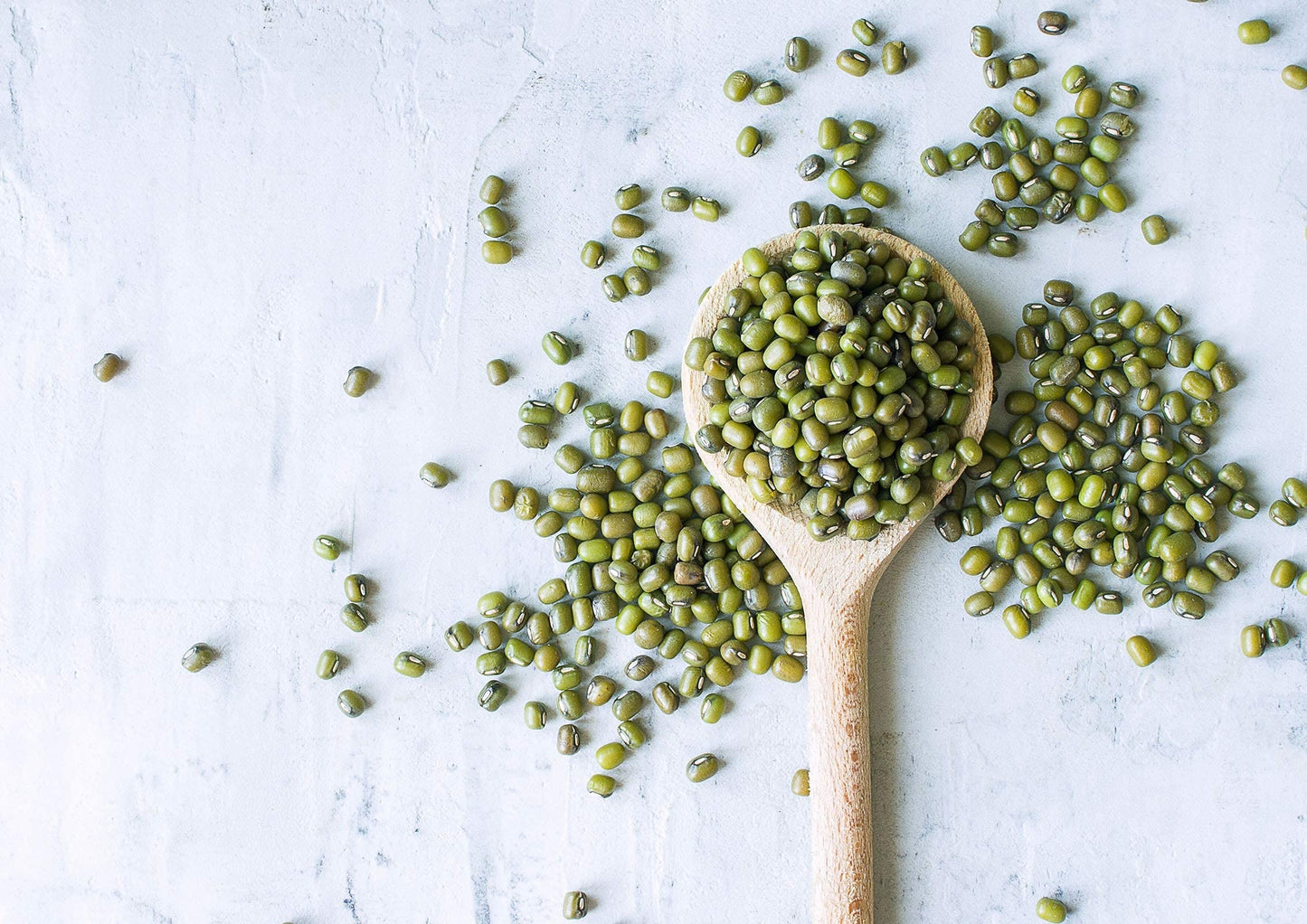You will not be allowed to compare more than 4 products at a time
View compareProduct Description
Mung Beans Plant: History & Botanical Facts Mung beans, also called moong dal or green gram, are a species of legume that makes its family proud. They are nutritious, easy to cook, and very good for you. The mung bean plant has been known to and used by humans for over 4000 years. It was first domesticated in Ancient Persia (contemporary Iran) and India. From there, mung bean seeds traveled to China, where they become one of the staple ingredients in the local cuisine. Mung beans have many names in different cultures and almost as many uses. The practitioners of Chinese herbal medicine used the vegetation of the plant in their recipes. Mung beans also are an important food in the Ayurvedic diet. For an average American, these beans are a way to improve their wellbeing by complementing their meal plan with a serving of legumes. They can be used in many dishes, so everyone can find a way to enjoy this healthy food. Reasons Why Food To Live Organic Mung Beans Are Good for You Legumes are an essential part of a healthy well-balanced diet regardless of whether you are a vegan or an omnivore. Mung beans are a great example of their species because their benefits include but aren’t limited to: High nutrient density. A cup of cooked mung beans provides you with the recommended daily amount of folate, as well as zinc (25% RDA), magnesium (36% RDA) and many other essential vitamins and minerals. High fiber content. There are 15 grams of dietary fiber in one serving of mung beans. This element promotes normal digestion and helps remove toxins from your body. Antioxidants.
Frequently Asked Questions
- Q: What are the health benefits of consuming organic mung beans? A: Organic mung beans are packed with nutrients, providing a high nutrient density that includes essential vitamins and minerals such as folate, zinc, and magnesium. They are also rich in dietary fiber, which promotes healthy digestion and helps eliminate toxins from the body.
- Q: How can I incorporate mung beans into my diet? A: Mung beans are extremely versatile and can be used in a variety of dishes. They can be added to salads, soups, and stir-fries, or even used to make flour for baking. You can cook them as a side dish or sprout them for use in salads and sandwiches.
- Q: Are organic mung beans suitable for vegan diets? A: Yes, organic mung beans are vegan-friendly and provide a great source of plant-based protein. They contain 14 grams of protein per cup when cooked, making them a nutritious option for vegans and vegetarians.
- Q: What is the best way to store mung beans? A: To maintain their freshness, store organic mung beans in a cool, dry place in an airtight container. They can last for several months when stored properly. If you have cooked mung beans, they should be refrigerated and consumed within a few days.
- Q: Can I use mung beans for sprouting, and how do I do it? A: Absolutely! Organic mung beans have a high germination rate, making them excellent for sprouting. To sprout, soak the beans in water for several hours, then drain and rinse them. Place them in a sprouting jar or container, and keep them moist but not soggy. Rinse them daily until they sprout, usually taking 3-5 days.


